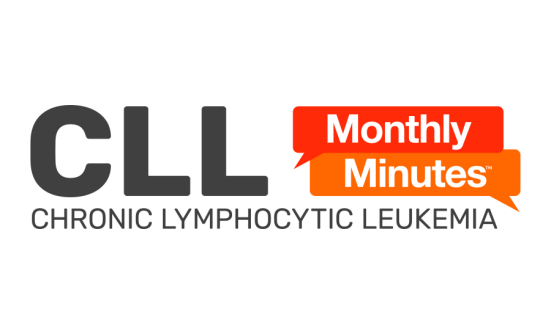Ibrutinib belongs to a class of medications called Bruton tyrosine kinase (BTK) inhibitors, which are important treatments for a number of B-cell cancers, including chronic lymphocytic leukemia, or CLL. Despite its efficacy in treating CLL, ibrutinib use has been associated with an increased risk of developing side effects that affect the heart. With the approval of a next-generation BTK inhibitor called acalabrutinib, researchers have sought to understand the risks of developing cardiovascular side effects in patients with CLL who receive this newer medication.
To evaluate the risk of cardiac side effects and changes to blood pressure due to acalabrutinib, investigators evaluated the safety results of 4 different studies that included 762 patients with CLL who received at least 1 dose of the medication. In these studies, patients received daily doses of acalabrutinib that ranged from 100 mg to 400 mg, before being switched to 100 mg twice daily, which is the approved dose of acalabrutinib for patients with CLL.
Patients receiving their first treatment for CLL made up approximately 46% of the study group, whereas those with relapsed or refractory CLL made up the other 54%. Half of all patients were aged ≥67 years, although the age range of patients in the analysis spanned from 32 years to 89 years. The large majority of patients (93%) were in overall good health at the start of the study, and half of all patients received acalabrutinib for more than 2 years.
The most commonly reported cardiac side effects in this analysis were an abnormal heart rhythm (atrial fibrillation or flutter) occurring in 4% to 5% of patients; a noticeable, pounding heartbeat (heart palpitations) occurring in 3% of patients; and rapid heart rate (tachycardia) occurring in 2% of patients. For atrial fibrillation or flutter, the first occurrence in half of all patients was at about 1.5 years (521 days) after their first dose of acalabrutinib.
Notably, most patients (91%) who had a cardiac side effect also had at least 1 cardiovascular risk factor before starting acalabrutinib. Common risk factors among this group included having high blood pressure; high amounts of fats/lipids in the blood, such as cholesterol and triglycerides; and abnormal heart rhythms, such as atrial fibrillation. Indeed, high blood pressure itself was a side effect that was observed in this analysis. Approximately 1 in 10 patients receiving acalabrutinib had high blood pressure over the course of these studies, although most already had preexisting high blood pressure, and many already had risk factors for developing high blood pressure.
In these studies, cardiac side effects caused 7 patients (0.9%) to stop taking acalabrutinib. Thirty-seven patients (4%) in this analysis had severe cardiac side effects (those of grade ≥3), which included abnormal heart rhythms, impaired electrical conduction within the heart, reduced blood flow to the heart, and congestive heart failure. Most serious cardiac side effects resolved with no change in acalabrutinib dosing, although for other patients delaying the next dose, stopping acalabrutinib treatment, or introduction of other medications was needed.
Approximately half of all cardiac side effects (48%) and one-quarter of severe cardiac side effects (25%) occurred within the first 6 months of patients starting acalabrutinib. Of these serious side effects, nearly all were managed without patients needing hospitalization and only additional medication, although some patients did need to stop treatment completely.
Overall, the risk of developing atrial fibrillation with acalabrutinib was similar to that seen in patients with CLL who had never taken acalabrutinib. Based on these results, the investigators of this analysis suggest that there is a low risk of cardiac side effects with acalabrutinib treatment in patients with CLL. Ongoing studies will evaluate the safety of acalabrutinib compared with ibrutinib in patients with high-risk CLL.
Reference
Brown JR, Byrd JC, Ghia P, et al. Pooled analysis of cardiovascular events from clinical trials evaluating acalabrutinib monotherapy in patients with chronic lymphocytic leukemia (CLL). Presented at the 62nd American Society for Hematology Annual Meeting and Exposition; December 7, 2020. Abstract 3146.















